 W
WLeonard Adleman is an American computer scientist. He is one of the creators of the RSA encryption algorithm, for which he received the 2002 Turing Award, often called the Nobel prize of Computer science. He is also known for the creation of the field of DNA computing.
 W
WRoss John Anderson, FRS, FREng is a researcher, author, and industry consultant in security engineering. He is Professor of Security Engineering at the Department of Computer Science and Technology, University of Cambridge where he is part of the University's security group.
 W
WMohamed M. Atalla was an Egyptian-American engineer, physical chemist, cryptographer, inventor and entrepreneur. He was a semiconductor pioneer who made important contributions to modern electronics. He is best known alongside Dawon Kahng for the invention of the MOSFET in 1959, along with his earlier surface passivation and thermal oxidation processes, revolutionized the electronics industry. He is also known as the founder of the data security company Atalla Corporation, founded in 1972. He received the Stuart Ballantine Medal and was inducted into the National Inventors Hall of Fame for his important contributions to semiconductor technology as well as data security.
 W
WDaniel Julius Bernstein is an American German mathematician, cryptologist, and computer programmer. He is a professor in the department of mathematics and computer science at the Eindhoven University of Technology, as well as a Research Professor of Computer Science at the University of Illinois at Chicago.
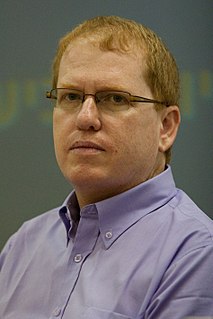 W
WEli Biham is an Israeli cryptographer and cryptanalyst, currently a professor at the Technion - Israel Institute of Technology Computer Science department. Starting from October 2008 and till 2013, Biham was the dean of the Technion Computer Science department, after serving for two years as chief of CS graduate school. Biham received his Ph.D. for inventing (publicly) differential cryptanalysis, while working under Adi Shamir. It had, it turned out, been invented at least twice before. A team at IBM discovered it during their work on DES, and was requested/required to keep their discovery secret by the NSA, who evidently knew about it as well.
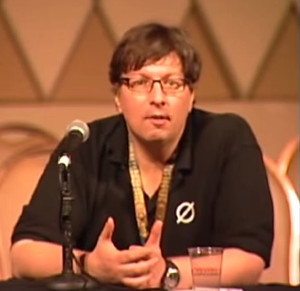 W
WMatt Blaze is a researcher in the areas of secure systems, cryptography, and trust management. He is currently the McDevitt Chair of Computer Science and Law at Georgetown University, and is on the board of directors of the Tor Project.
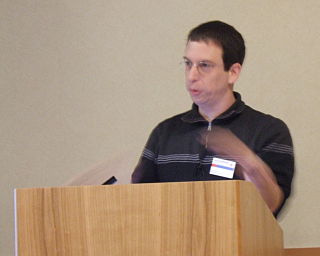 W
WDan Boneh is an Israeli-American professor in applied cryptography and computer security at Stanford University.
 W
WGilles Brassard, is a faculty member of the Université de Montréal, where he has been a Full Professor since 1988 and Canada Research Chair since 2001.
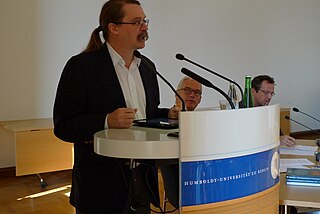 W
WJon Callas is an American computer security expert, software engineer, user experience designer, and technologist who is the co-founder and former CTO of the global encrypted communications service Silent Circle. He has held major positions at Digital Equipment Corporation, Apple, PGP, and Entrust, and is considered "one of the most respected and well-known names in the mobile security industry." Callas is credited with creating several Internet Engineering Task Force (IETF) standards, including OpenPGP, DKIM, and ZRTP, which he wrote. Prior to his work at Entrust, he was Chief Technical Officer and co-founder of PGP Corporation and the former Chief Technical Officer of Entrust.
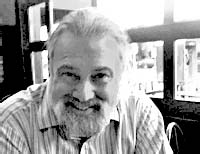 W
WDavid Chaum is an American computer scientist and cryptographer. He is known as a pioneer in cryptography and privacy-preserving technologies, and widely recognized as the inventor of digital cash. His 1982 dissertation "Computer Systems Established, Maintained, and Trusted by Mutually Suspicious Groups" is the first known proposal for a blockchain protocol. Complete with the code to implement the protocol, Chaum's dissertation proposed all but one element of the blockchain later detailed in the Bitcoin whitepaper.
 W
WClifford Christopher Cocks CB FRS is a British mathematician and cryptographer. In 1973, while working at the United Kingdom Government Communications Headquarters (GCHQ), he invented a public key cryptography algorithm equivalent to what would become the RSA algorithm.
 W
WEdward H. "Ned" Deets III is a retired Rear Admiral in the United States Navy. A cryptology and information warfare specialist, Deets was the senior Information Warfare Officer (IWO) in the Navy..
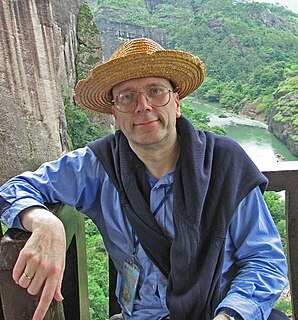 W
WDr. Yvo G. Desmedt is the Jonsson Distinguished Professor at the University of Texas at Dallas, and in addition Chair of Information Communication Technology at University College London. He was a pioneer of threshold cryptography and is an International Association for Cryptologic Research Fellow. He also made crucial observations that were used in the cryptanalysis of the Merkle–Hellman knapsack cryptosystem and observed properties of the Data Encryption Standard which were used by Eli Biham and Adi Shamir when they invented Differential Cryptanalysis.
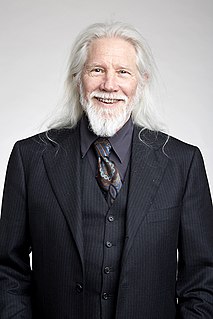 W
WBailey Whitfield 'Whit' Diffie, ForMemRS, is an American cryptographer and one of the pioneers of public-key cryptography along with Martin Hellman and Ralph Merkle. Diffie and Hellman's 1976 paper New Directions in Cryptography introduced a radically new method of distributing cryptographic keys, that helped solve key distribution—a fundamental problem in cryptography. Their technique became known as Diffie–Hellman key exchange. The article stimulated the almost immediate public development of a new class of encryption algorithms, the asymmetric key algorithms.
 W
WDr. Taher Elgamal is an Egyptian cryptographer and entrepreneur. He is recognized as the "father of SSL" for the work he did in computer security while working at Netscape, which helped in establishing a private and secure communications on the Internet.
 W
WShimon Even was an Israeli computer science researcher. His main topics of interest included algorithms, graph theory and cryptography. He was a member of the Computer Science Department at the Technion since 1974. Shimon Even was the PhD advisor of Oded Goldreich, a prominent cryptographer.
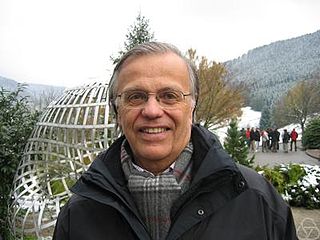 W
WGerhard Frey is a German mathematician, known for his work in number theory. His Frey curve, a construction of an elliptic curve from a purported solution to the Fermat equation, was central to Wiles's proof of Fermat's Last Theorem.
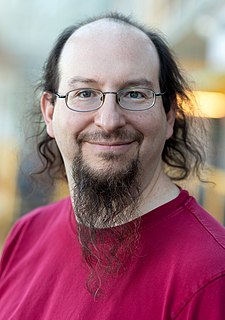 W
WIan Avrum Goldberg is a cryptographer and cypherpunk. He is best known for breaking Netscape's implementation of SSL, and for his role as chief scientist of Radialpoint, a Canadian software company. Goldberg is currently a professor at the David R. Cheriton School of Computer Science, within the University of Waterloo. He was formerly Tor Project board of directors chairman, and is one of the designers of off the record messaging.
 W
WOded Goldreich is a professor of Computer Science at the Faculty of Mathematics and Computer Science of Weizmann Institute of Science, Israel. His research interests lie within the theory of computation and are, specifically, the interplay of randomness and computation, the foundations of cryptography, and computational complexity theory. He won the Knuth Prize in 2017.
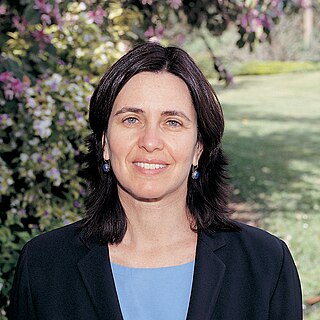 W
WShafrira Goldwasser is an Israeli-American computer scientist and winner of the Turing Award in 2012. She is the RSA Professor of Electrical Engineering and Computer Science at MIT, a professor of mathematical sciences at the Weizmann Institute of Science, Israel, co-founder and chief scientist of Duality Technologies and the director of the Simons Institute for the Theory of Computing in Berkeley, CA. She was on the Mathematical Sciences jury for the Infosys Prize in 2020.
 W
WIrving John Good was a British mathematician who worked as a cryptologist at Bletchley Park with Alan Turing. After the Second World War, Good continued to work with Turing on the design of computers and Bayesian statistics at the University of Manchester. Good moved to the United States where he was professor at Virginia Tech.
 W
WMatthew Daniel Green is a cryptographer and security technologist. Green is an Associate Professor of Computer Science at the Johns Hopkins Information Security Institute. He specializes in applied cryptography, privacy-enhanced information storage systems, anonymous cryptocurrencies, elliptic curve crypto-systems, and satellite television piracy. He is a member of the teams that developed the Zerocoin anonymous cryptocurrency and Zerocash. He has also been influential in the development of the Zcash system. He has been involved in the groups that exposed vulnerabilities in RSA BSAFE, Speedpass and E-ZPass.
 W
WHugo Hadwiger was a Swiss mathematician, known for his work in geometry, combinatorics, and cryptography.
 W
WGeorg Karl Wilhelm Hamel was a German mathematician with interests in mechanics, the foundations of mathematics and function theory.
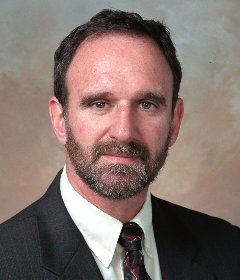 W
WMartin Edward Hellman is an American cryptologist, best known for his invention of public key cryptography in cooperation with Whitfield Diffie and Ralph Merkle. Hellman is a longtime contributor to the computer privacy debate, has applied risk analysis to a potential failure of nuclear deterrence, and in 2016 wrote a book with his wife, Dorothie Hellman, that links creating love at home to bringing peace to the planet.
 W
WAvinash C. Kak is a professor of Electrical and Computer Engineering at Purdue University who has conducted pioneering research in several areas of information processing. His most noteworthy contributions deal with algorithms, languages, and systems related to networks, robotics, and computer vision. Born in Srinagar, Kashmir, he was educated at College of Engineering, Guindy and Indian Institute of Technology Delhi. He joined the faculty of Purdue University in 1971.
 W
WSubhash Kak is an Indian-American computer scientist and a Hindutva-based historical revisionist. He is the Regents Professor of Computer Science Department at Oklahoma State University–Stillwater, an honorary visiting professor of engineering at Jawaharlal Nehru University, and a member of the Indian Prime Minister's Science, Technology and Innovation Advisory Council (PM-STIAC).
 W
WRNDr. Vlastimil Klíma is a leading cryptographer, computer security expert, and white hat hacker.
 W
WLars Ramkilde Knudsen is a Danish researcher in cryptography, particularly interested in the design and analysis of block ciphers, hash functions and message authentication codes (MACs).
 W
WWerner Koch is a German free software developer. He is best known as the principal author of the GNU Privacy Guard. He was also Head of Office and German Vice-Chancellor of the Free Software Foundation Europe. He is the winner of Award for the Advancement of Free Software in 2015 for founding GnuPG.
 W
WPeter Landrock is a Danish cryptographer and mathematician. He is known for his contributions to data encryption methods and codes. Landrock has been active since the 1970s as research scientist and faculty member for Cambridge University and the University of Aarhus and others, and was active for Microsoft and Cryptomathic. He has been visiting professor at Oxford University, Leuven University and Princeton University.
 W
WTanja Lange is a German cryptographer and number theorist at the Eindhoven University of Technology. She is known for her research on post-quantum cryptography.
 W
WRichard A. Leibler was an American mathematician and cryptanalyst. Richard Leibler was born in March 1914. He received his A.M. in mathematics from Northwestern University and his Ph.D. from the University of Illinois in 1939. While working at the National Security Agency, he and Solomon Kullback formulated the Kullback–Leibler divergence, a measure of similarity between probability distributions which has found important applications in information theory and cryptology. Leibler is also credited by the NSA as having opened up "new methods of attack" in the celebrated VENONA code-breaking project during 1949-1950; this may be a reference to his joint paper with Kullback, which was published in the open literature in 1951 and was immediately noted by Soviet cryptologists.
 W
WAbraham Lempel is an Israeli computer scientist and one of the fathers of the LZ family of lossless data compression algorithms.
 W
WArjen Klaas Lenstra is a Dutch mathematician, cryptographer and computational number theorist. He is currently a professor at the École Polytechnique Fédérale de Lausanne (EPFL) where he heads of the Laboratory for Cryptologic Algorithms.
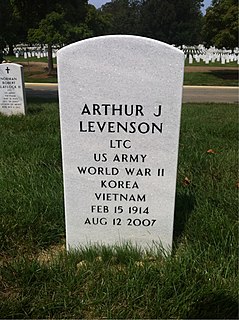 W
WArthur J. Levenson was a cryptographer, United States Army officer and NSA official who worked on the Japanese J19 and the German Enigma codes.
 W
WYehuda Lindell is a professor in the Department of Computer Science at Bar-Ilan University where he conducts research on cryptography with a focus on the theory of secure computation and its application in practice.
 W
WMichael George Luby is a mathematician and computer scientist, CEO of BitRipple, Senior Research Scientist at the International Computer Science Institute (ICSI), former VP Technology at Qualcomm, co-founder and former Chief Technology Officer of Digital Fountain. In coding theory he is known for leading the invention of the Tornado codes and the LT codes. In cryptography he is known for his contributions showing that any one-way function can be used as the basis for private cryptography, and for his analysis, in collaboration with Charles Rackoff, of the Feistel cipher construction. His distributed algorithm to find a maximal independent set in a computer network has also been very influential. He has also contributed to average-case complexity.
 W
WRalph C. Merkle is a computer scientist. He is one of the inventors of public key cryptography, the inventor of cryptographic hashing, and more recently a researcher and speaker on cryonics.
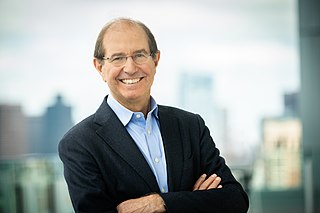 W
WSilvio Micali is an Italian computer scientist at MIT Computer Science and Artificial Intelligence Laboratory and a professor of computer science in MIT's Department of Electrical Engineering and Computer Science since 1983. His research centers on the theory of cryptography and information security.
 W
WVincent Moscaritolo is an American computer security expert known for work in encryption applications for mobile devices. From 2012 to 2015, he was the Distinguished Member of Technical Staff at Silent Circle, where he designed the original messaging technologies Silent Circle uses. In 2015, he left Silent Circle to co-found 4th-A Technologies, LLC with Robbie Hanson. 4th-A Technologies develops technologies that restore to restore to people their inalienable right to be “secure in their documents”. They designed ZeroDark.cloud a framework that simplifies the development of apps that interact with the cloud, and performs tasks such as syncing, messaging & collaboration. It uses zero-knowledge encryption, ensuring the data in the cloud cannot be compromised. They also produced the Storm4 secure cloud storage service.
 W
WDavid Naccache is a cryptographer, currently a professor at the École normale supérieure and a member of its Computer Laboratory. He was previously a professor at Panthéon-Assas University. He received his Ph.D. in 1995 from the École nationale supérieure des télécommunications. Naccache's most notable work is in public-key cryptography, including the cryptanalysis of digital signature schemes. Together with Jacques Stern he designed the similarly named but very distinct Naccache-Stern cryptosystem and Naccache-Stern knapsack cryptosystem.
 W
WLandon Curt Noll is an American computer scientist, co-discoverer of the 25th Mersenne prime and discoverer of the 26th, which he found while still enrolled at Hayward High School and concurrently at California State University, Hayward.
 W
WNiels Provos is a German-American researcher in security engineering, malware, and cryptography. He received a PhD in computer science from the University of Michigan. From 2003 to 2018, he worked at Google as a Distinguished Engineer on security for Google Cloud Platform. In 2018, he left Google to join Stripe as its new head of security.
 W
WMichael Oser Rabin is an Israeli mathematician and computer scientist and a recipient of the Turing Award.
 W
WTal Rabin is a computer scientist, head of Research at the Algorand Foundation. Former head of cryptography research group at IBM's Thomas J. Watson Research Center.
 W
WVincent Rijmen is a Belgian cryptographer and one of the two designers of the Rijndael, the Advanced Encryption Standard. Rijmen is also the co-designer of the WHIRLPOOL cryptographic hash function, and the block ciphers Anubis, KHAZAD, Square, NOEKEON and SHARK.
 W
WAmit Sahai is an American computer scientist. He is a professor of computer science at UCLA and the director of the Center for Encrypted Functionalities.
 W
WLeonard Harris Sassaman was an advocate for privacy, and the maintainer of the Mixmaster anonymous remailer code and operator of the randseed remailer.
 W
WBruce Schneier is an American cryptographer, computer security professional, privacy specialist and writer. Schneier is a Lecturer in Public Policy at the Harvard Kennedy School and a Fellow at the Berkman-Klein Center for Internet & Society. He is a board member of the Electronic Frontier Foundation, AccessNow, and the Tor Project; and an advisory board member of EPIC and VerifiedVoting.org. Schneier is currently employed as the Chief of Security Architecture at Inrupt, Inc. in Boston, MA. He is the author of several books on general security topics, computer security and cryptography and a squid enthusiast.
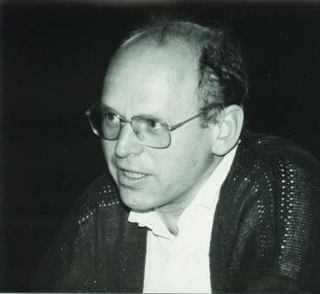 W
WClaus-Peter Schnorr is a German mathematician and cryptographer.
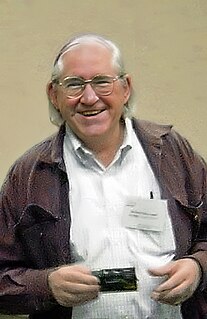 W
WRichard C. Schroeppel is an American mathematician born in Illinois. His research has included magic squares, elliptic curves, and cryptography. In 1964, Schroeppel won first place in the United States among over 225,000 high school students in the Annual High School Mathematics Examination, a contest sponsored by the Mathematical Association of America and the Society of Actuaries. In both 1966 and 1967, Schroeppel scored among the top 5 in the U.S. in the William Lowell Putnam Mathematical Competition. In 1973 he discovered that there are 275,305,224 normal magic squares of order 5. In 1998–1999 he designed the Hasty Pudding Cipher which was a candidate for the Advanced Encryption Standard, and he is one of the designers of the SANDstorm hash, a submission to the NIST SHA-3 competition.
 W
WAdi Shamir is an Israeli cryptographer. He is a co-inventor of the Rivest–Shamir–Adleman (RSA) algorithm, a co-inventor of the Feige–Fiat–Shamir identification scheme, one of the inventors of differential cryptanalysis and has made numerous contributions to the fields of cryptography and computer science.
 W
WClaude Elwood Shannon was an American mathematician, electrical engineer, and cryptographer known as "the father of information theory". Shannon is noted for having founded information theory with a landmark paper, "A Mathematical Theory of Communication", which he published in 1948.
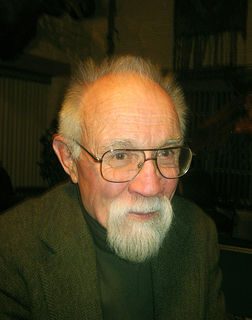 W
WGustavus J. Simmons is a retired cryptographer and former manager of the applied mathematics Department and Senior Fellow at Sandia National Laboratories. He worked primarily with authentication theory, developing cryptographic techniques for solving problems of mutual distrust and in devising protocols whose function could be trusted, even though some of the inputs or participants cannot be. Simmons was born in West Virginia and was named after his grandfather, a prohibition officer who was gunned down three years before Gustavus was born. He began his post-secondary education at Deep Springs College, and received his Ph.D in mathematics from the University of New Mexico, Albuquerque.
 W
WJacques Stern is a cryptographer, currently a professor at the École Normale Supérieure, where he is Director of the Computer Science Laboratory. He received the 2006 CNRS Gold medal. His notable work includes the cryptanalysis of numerous encryption and signature schemes, the design of the Pointcheval–Stern signature algorithm, the Naccache–Stern cryptosystem and Naccache–Stern knapsack cryptosystem, and the block ciphers CS-Cipher, DFC, and xmx. He also contributed to the cryptanalysis of the SFLASH signature scheme.
 W
WDouglas Robert Stinson is a Canadian mathematician and cryptographer, currently a professor at the University of Waterloo and a member of the Centre for Applied Cryptographic Research.
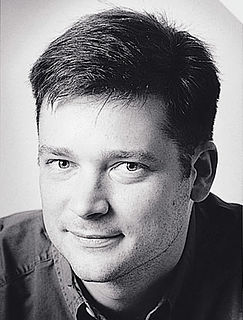 W
WDavid A. Wagner is a Professor of Computer Science at the University of California, Berkeley and a well-known researcher in cryptography and computer security. He is a member of the Election Assistance Commission's Technical Guidelines Development Committee, tasked with assisting the EAC in drafting the Voluntary Voting System Guidelines. He is also a member of the ACCURATE project.
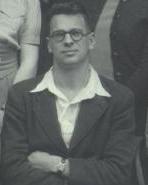 W
WDavid John Wheeler FRS was a computer scientist and professor of computer science at the University of Cambridge.
 W
WPhilip R. Zimmermann is an American computer scientist and cryptographer. He is the creator of Pretty Good Privacy (PGP), the most widely used email encryption software in the world. He is also known for his work in VoIP encryption protocols, notably ZRTP and Zfone. Zimmermann is co-founder and Chief Scientist of the global encrypted communications firm Silent Circle.